
The Free Press

In our main story today, Free Press reporter Francesca Block digs into the American-born Marxist who has spent more than $20 million fomenting hate in his homeland. Neville Roy Singham made a fortune in tech and now funds a group behind some of the ugly protests sparked by Hamas’s attack on Israel. What’s more, he and his hard-left wife Jodie Evans are unabashed propagandists for China, even though the chic headquarters of their pro-Communist group are based smack-dab in Midtown Manhattan.
Read on to find out why one senior congressman has called out Singham for activities that “divide and weaken America”:
The pro-Palestinian protests over the last month, where tens of thousands in the U.S. have chanted for the end of Israel, are not merely a story of organic rage.
They are also funded in large part by an uber-wealthy American-born tech entrepreneur: Neville Roy Singham, and his wife Jodie Evans.
Since 2017, Singham has been the main funder of The People’s Forum, which has co-organized at least four protests after 1,400 innocent Israelis were slaughtered by Hamas on October 7. One rally, in Times Square, happened on October 8 before Israel had even counted its dead.
Based in Midtown Manhattan, The People’s Forum calls itself a “movement incubator for working class and marginalized communities to build unity across historic lines of division at home and abroad.” But a review of public disclosure forms show that multimillionaire Singham and his wife Evans have donated over $20.4 million to The People’s Forum from 2017 to 2022 through a series of shell organizations and donor advisory groups—accounting for nearly all of the group’s funding.
Singham’s wealth stems from Thoughtworks, a software consulting company that he launched in 1993 in Chicago and sold in August 2017 to private equity firm Apax Partners for $785 million. That same year, The People’s Forum was founded and set up on the ground floor of a multistory building on 37th Street just blocks from Times Square; Evans was also installed as one of its three board members. As of 2021, the organization employed 13 staff members and held more than $13.6 million in total assets.
“I decided that at my age and extreme privilege, the best thing I could do was to give away most of my money in my lifetime,” said Singham, now 69, in a statement after selling his company, according to a New York Times investigation in August.
But Singham is more than just a Marxist with deep pockets. He is also a China sympathizer who lives in Shanghai and has close ties to at least four propaganda news sites that boost the Chinese Communist Party’s image abroad, the Times reported.
Our second story today comes from Michael Oren, who served as Israel’s ambassador to the U.S. from 2009 to 2013. Michael details the missteps in America’s Iran policy that, he argues, have destabilized the region.
His piece is important especially in the wake of yesterday’s news that the Biden administration waived sanctions that gives Iran access to $10 billion in previously frozen assets.
Given that Tehran is already behind attacks on U.S. troops in the region, Oren wonders if anything can force the Biden administration to reconsider their disastrous Middle East strategy.
“One night. That’s all it would take. One night, and your setbacks in Iraq and Afghanistan will vanish!” So Ehud Barak exhorted the national security adviser of the United States and his senior staff. The year was 2010, Barack Obama was president, and Barak, formerly IDF head and prime minister, was serving as Israel’s defense minister. We were seated around a table in Washington, sipping coffee and chatting casually about Iran. My job as Israel’s ambassador to the United States was to listen attentively as Barak spoke, but what he was saying surprised me—and shocked our American hosts.
“One night of bombing by your B1s and B2s, and the Iranian nuclear problem disappears!”
Later a bitter opponent of Prime Minister Benjamin Netanyahu and an outspoken advocate for peace, Barak back then endorsed Netanyahu’s policy of preventing Iran from acquiring nuclear weapons, by military means if necessary. But the Israeli air force, based largely on tactical fighters of limited range and payloads, lacked the strategic bombers able to carry the 30,000-pound bunker busters. America had that capability—and more—but adamantly refused to use it.
Today’s Biden-Xi summit has already achieved the seemingly impossible: forcing San Francisco leaders to clean up the city’s streets. (California governor Gavin Newsom put it succinctly: “I know folks say, ‘Oh, they’re just cleaning up this place because all those fancy leaders are coming into town.’ That’s true, because it’s true.”) But beyond the shining sidewalks of the city by the bay, what is at stake at today’s powwow between the two most powerful leaders in the world?
To help us better understand the summit’s significance, I spoke to Elbridge Colby. Elbridge served as the Deputy Assistant Secretary of Defense for Strategy and Force Development in the Trump administration. Since leaving the government he has been ringing the alarm about what he sees as America’s dangerous underestimation of the China threat. In his influential 2021 book The Strategy of Denial, he makes the case for a U.S. foreign policy laser-focused on China. Below is an edited transcript of my conversation with Elbridge.
Why are Biden and Xi meeting tomorrow?
Well, that’s a good question. It’s a little bit confusing because it’s simultaneously being sold as a very big deal, but at the same time, administration spokesmen and reporters will say that it’s not really likely to change much of anything at all. I think the most charitable explanation is that the administration is seeking to communicate directly to Xi Jinping that we are not looking to strangle them or suppress them. What Xi Jinping presumably wants to achieve in his visit is not actually speaking to Biden, but speaking to American businessmen. There’s a big gala. And so the administration’s view seems to be: let’s leverage this downturn in China’s economic fortunes to see if we can get things on a better track. It’s very clear the administration is trying to downplay the threat of a conflict over Taiwan. So I do fear that in pursuing this strategy, they don’t have their foot on the accelerator, and they’re removing it even more.
What do you mean by that? What should the administration be doing?
It’s obvious at this point that we’re not in good shape and the Chinese are actively preparing for a conflict over Taiwan. That’s what the administration should be focusing on. There’s also an argument that they should be putting more economic sanctions on China.
In any case, there are real questions about what the administration is doing more generally. They are desperate to avoid a confrontation in the Pacific because they’re overwhelmed with what’s going on in Europe and the Middle East. The fact that Biden didn’t mention China in his recent Oval Office address was extremely telling. I mean, China is supposed to be the priority. This administration said in their national security strategy that this is the only power that could have a really fundamental impact on the world order and America’s place in it. But the vast majority of spending is going to Ukraine and then some to Israel, with very little for Taiwan.
Xi Jinping does not strike me as the kind of guy who’s like, Oh, they need a favor, I’m gonna give them a favor. We know that they haven’t stopped their military buildup; they haven’t stopped their aggressive activities against Taiwan or the Philippines or anything like that. Nothing fundamental has changed. That’s the basic context.
Earlier you said the administration wants to get US-China relations on a better track. What would that look like?
A lot of the things that get attention aren’t particularly meaningful. For instance, there’s a focus on military-to-military communication, which officials have talked up as something that may be reinstated after this summit. But the problem is not that Chinese military officers don’t pick up the phone. The problem is a political decision in Beijing to build a huge military that can challenge the United States and to use that military to aggressively challenge the United States. That’s the issue.
What diplomatic tools does the U.S. have that might deter Xi in Taiwan?
At the end of the day, I think the only thing that is really going to deter Xi Jinping from moving into Taiwan as part of a larger effort to eject the United States from the western Pacific is military force.
And we don’t currently have the necessary force. Frank Kendall, the secretary of the Air Force—a Democratic appointee—is saying that we’re not ready for a war with China. The point here is that deterrence is the basis for peace. If we want to have peace, first we have to persuade a fundamentally revisionist, expansive power that it will not benefit from the employment of military force. There’s a cart and horse problem here with the administration. They want to get back to good feelings that will get things “back on track” and foster greater trust. But the problem is not a lack of trust. It’s a matter of fundamentally conflicting interests: they want to have a hegemonic role, at least in their area, and we don’t want them to have that role—neither does Japan or India. And you can’t massage that out of existence.
In the meantime, the administration has dumped all its credibility into Europe at this point, and now it’s enmeshed in the Middle East as well and it’s like, Jeez, the last thing we need is a conflict in Asia. Well, if you’re Xi Jinping, that’s a pretty attractive time to drive a hard bargain at a minimum.
On our radar. . .
→ Americans stand with Israel: Tens of thousands of Americans rallying for Israel on the Mall in Washington yesterday served as a peaceful, heartening rejoinder to the anti-Israel protests of recent weeks.
Free Press contributor James Kirchick was at the rally and texted me his impression of the gathering:
In contrast to the disgusting displays of hate that have desecrated great cities around the world in the weeks after 10/7, the march in Washington today was rife with American flags. It was a bold reminder that the US-Israel relationship—so often spoken of conspiratorially in terms of money, lobbying, and undue influence—is ultimately about shared values and aspirations. It was a somber yet also joyous occasion, and a reminder that siding with the enemies of the Jews is a very bad bet.
Another attendee, Jack Elbaum, 22, an international affairs and economics major at George Washington University and president of GW for Israel, told The Free Press that “being at the rally allowed me to internalize a simple truth”:
Most Americans stand with Israel in its fight against Hamas. It is an easy thing to forget when on a campus like George Washington’s, where, day in and day out, student groups chant slogans like “There is only one solution, intifada revolution” and project “Glory to our martyrs” on the school library. . . . To stand alongside fellow Americans and supporters of Israel in a staggeringly large crowd and listen to officials at the highest level of government say we stand against terror and for bringing the hostages home has given me the strength, motivation, and confidence to continue to bring this message to George Washington. It reminded me that not only the Jewish people, but the American people, are behind me.
Recommended viewing: watch the Soviet dissident Natan Sharansky speak at two rallies 36 years apart.
→ Senate scuffle: We go live to the greatest deliberative body in the world, the U.S. Senate, where Oklahoma senator (and absolutely jacked wrestling enthusiast) Markwayne Mullin challenged a union leader to a physical fight during a hearing on corporate greed. After a long-standing Twitter beef, Mullin asked Teamster honcho Sean O’Brien to “stand your butt up” and settle it right there and then. The real hero of the near scuffle? Senator Bernie Sanders, a.k.a. America’s crotchety grandpa, who gave everyone involved the old-fashioned telling off they deserved.
→ Flowers for Emilio: For Veterans Day on Saturday, Joe Nocera penned a powerful Free Press essay about Emilio Barbosa, a teenager from New York who served on the Normandy beaches and died in the Pacific theater when a kamikaze pilot dived into his ship.
After he discovered a small plaque in Manhattan’s Bennett Park honoring Barbosa, Joe set out to learn everything he could about the 19-year-old WWII veteran for his piece, “The Tribute to a Little-Known Soldier.”
When Joe went back to the park Monday, he found a couple of small bouquets lying next to Barbosa’s plaque. We at Free Press HQ like to think they were laid by readers moved by Joe’s extraordinary essay.
Become a Free Press subscriber today:

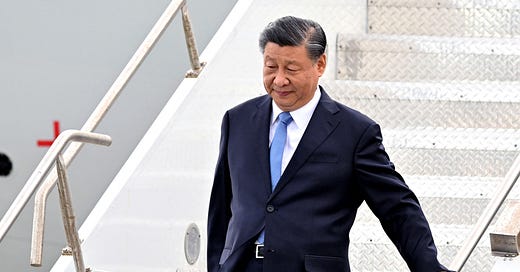

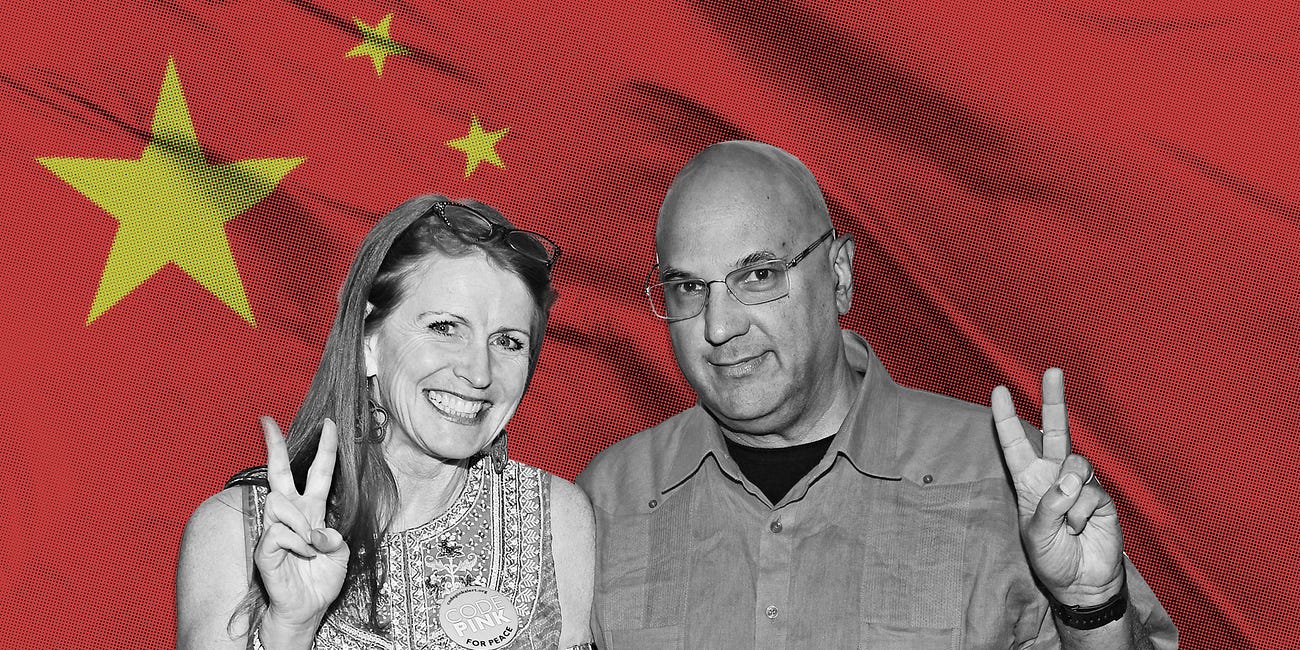

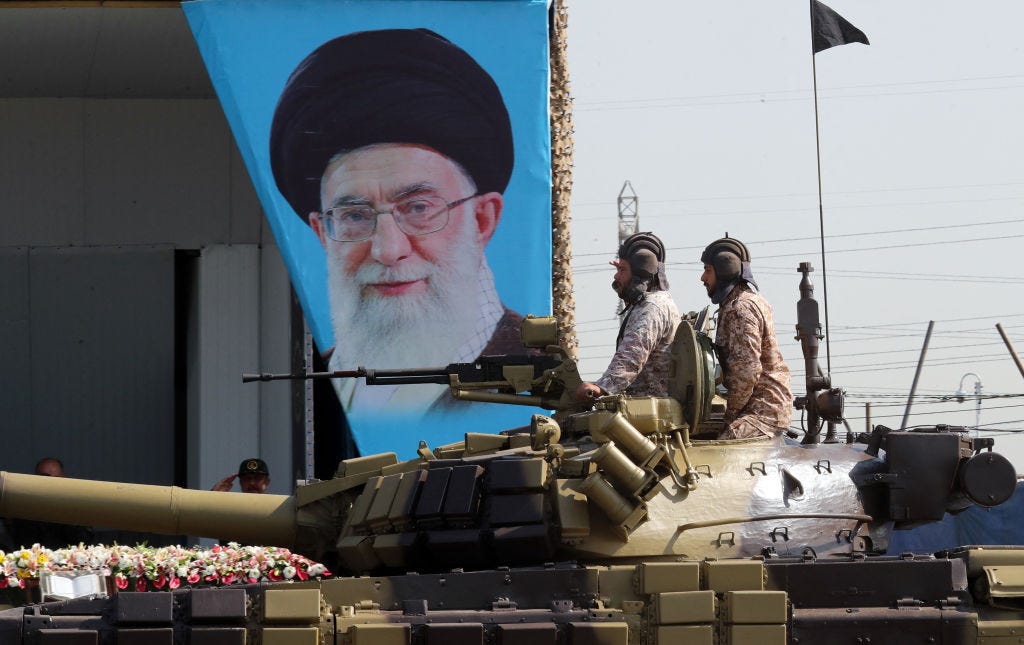




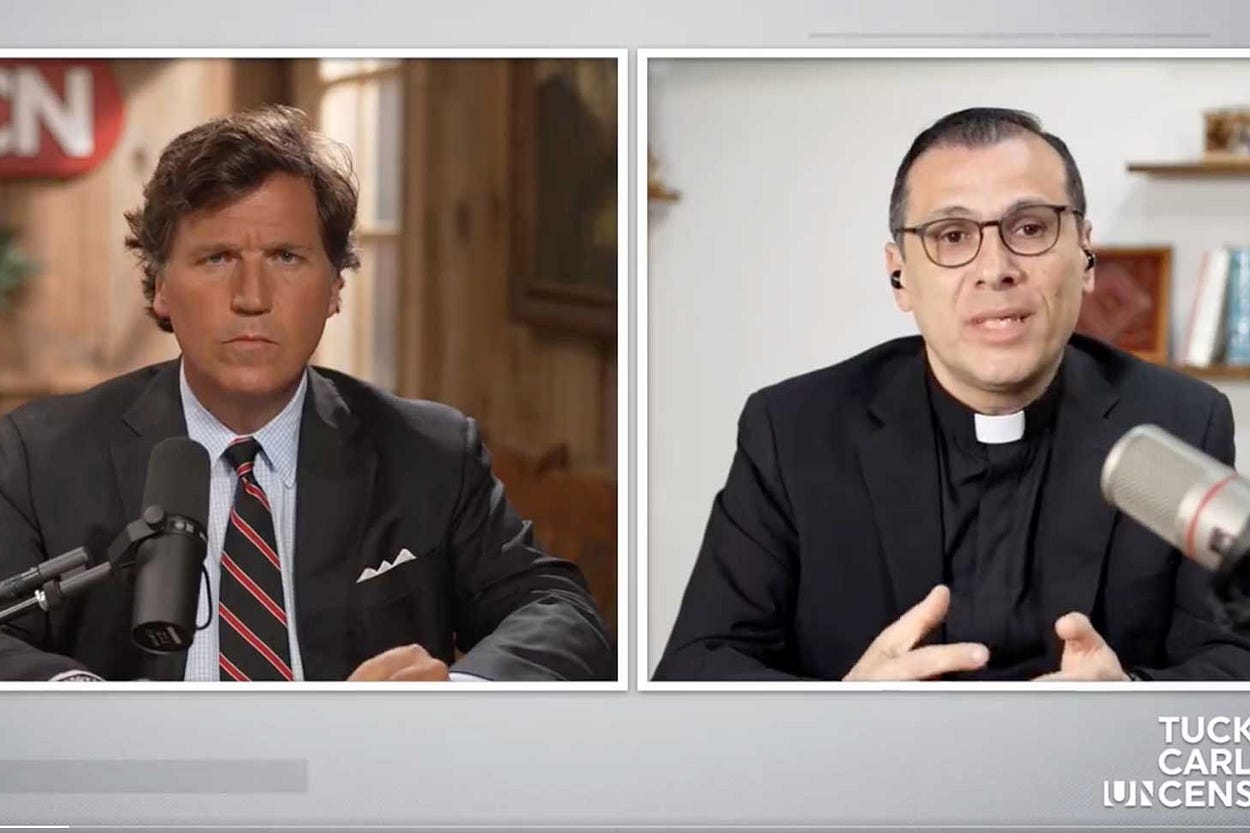







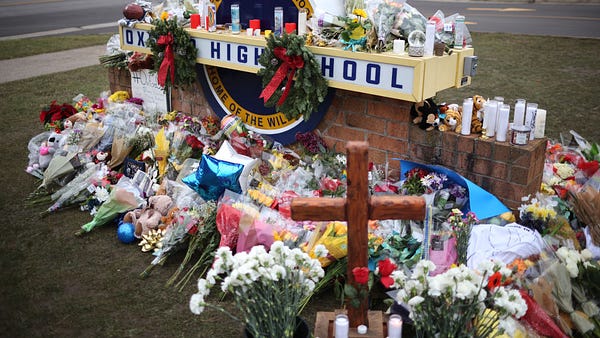

Every story on TFP mentions 1,400 Israeli dead from Oct 7.
I never seem to see the articles describing the 11,000+ dead in Gaza. Must be looking in the wrong place. Or on the wrong site.
So in other words the (generic) "free press" is no longer "free"- and hasn't been for a long time.
I just would like to hear the full, contextualized story- and THEN if you want to offer an opinion- fine. But the blatant lies, omissions, and sensationalizing is unacceptable